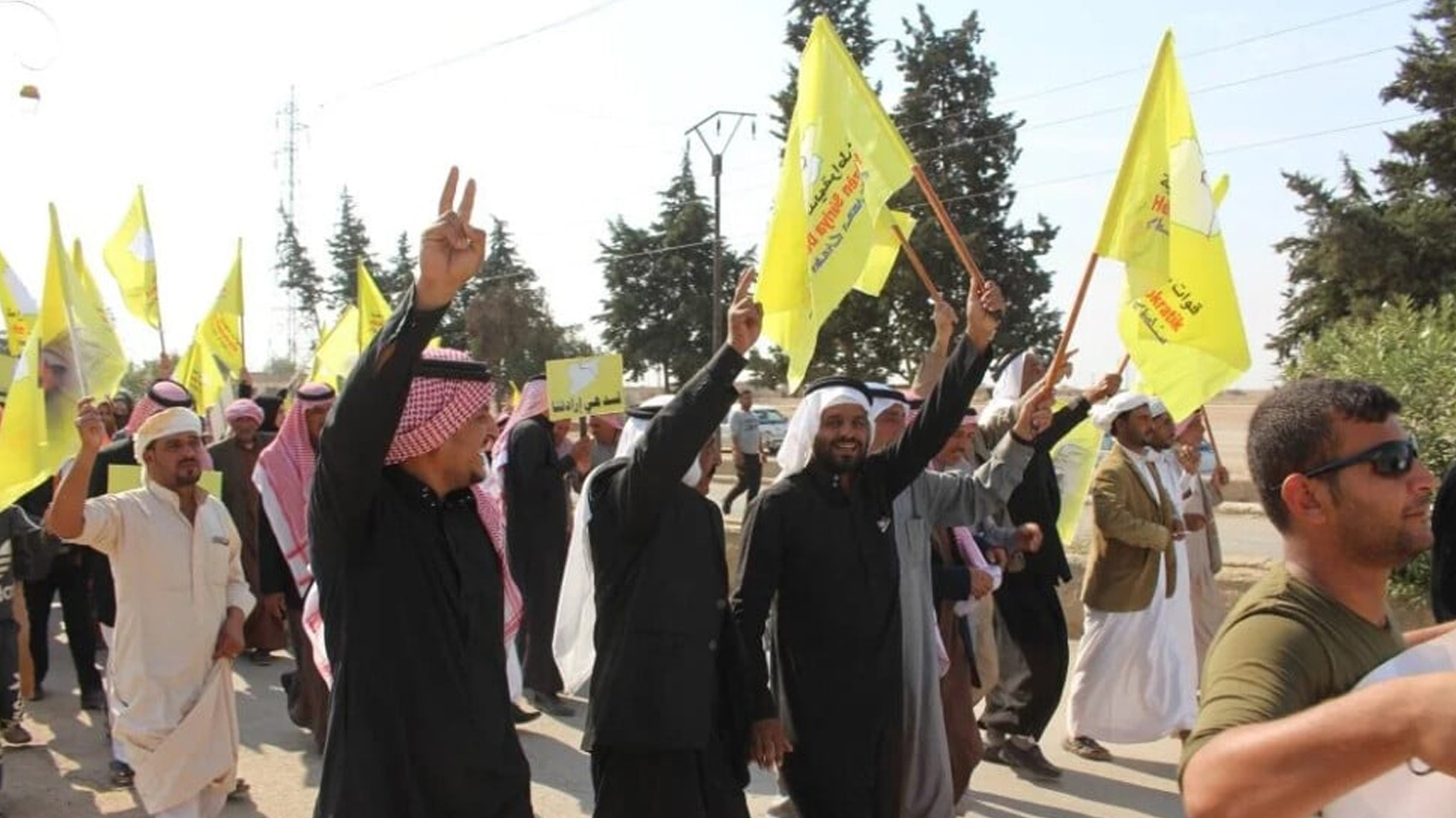Coalition Meets Raqqa Tribes, Civilians to Discuss City’s Future
US-led Coalition meets Raqqa tribes, Tribes backs SDF role, reject Damascus return, call SDF "sons of the region." Talks follow Hasakah unity conference pushing decentralized rule.

ERBIL (Kurdistan24) – The Syrian Observatory for Human Rights (SOHR) reported on Sunday that a delegation from the U.S.-led International Coalition held an extensive meeting in Raqqa with tribal leaders, community elders, and civil society representatives to discuss the future of the city and broader governance in northeast Syria.
The meeting brought together representatives of more than 15 major tribes, along with some 50 figures from political parties, intellectuals, human rights groups, women’s organizations, and local notables. Participants unanimously underscored their support for the Syrian Democratic Forces (SDF), describing them as “sons of the region” who sacrificed tens of thousands of lives to liberate Raqqa from ISIS control.
Speakers at the gathering called on the International Coalition to prevent any proposals that would seek the disarmament of the SDF, the withdrawal of its forces, or the handover of Raqqa to Damascus. They voiced absolute rejection of the Syrian government’s return to the city, citing “the massacres and violations committed against residents of the coastal region and the Druze community,” and emphasized that such traumatic experiences must not be repeated in Raqqa.
The discussions unfolded at a time of growing debate about the political and security trajectory of northern and eastern Syria, where fears are mounting that new arrangements could undermine local stability and jeopardize the hard-won gains of recent years.
The Raqqa meeting follows the conclusion of the Conference on the Unity of Position of the Components of North and East Syria, held in Hasakah on Friday under the slogan “Together for Diversity that Strengthens Our Unity… Through Partnership We Build Our Future.”
In its closing statement, read by Sheikh Hassan Farhan Abdulrahman of the Tayy tribe, participants reaffirmed their commitment to building a democratic, decentralized Syria that embraces diversity, partnership, and equal citizenship. The conference emphasized that Syria’s ethnic, religious, and cultural pluralism must be enshrined within governance structures, while rejecting any return to the exclusionary and assimilationist policies of past regimes.
The statement praised the sacrifices of the SDF, calling the force a nucleus of a future professional Syrian army capable of defending the country’s sovereignty and borders. It further underscored the need for a new democratic constitution, transitional justice, and the safe return of displaced people—alongside active participation of women, youth, and civil society in shaping the country’s future.
